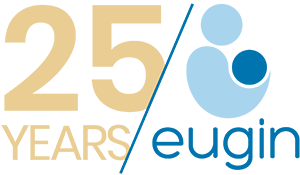Preimplantation Genetic Diagnosis allows people with a history of hereditary genetic alterations to have healthy children
There are more than 6,000 serious diseases that can be transmitted from parents to children. In the event of having a relative who suffers from any of these hereditary genetic alterations, the risk of another member of the family having a child with the same disease increases, even though the father and the mother are perfectly healthy. Fortunately, a technique exists today that eliminates this risk: Preimplantation Genetic Diagnosis (PGD).
How it works
PGD is a laboratory technique in which it is guaranteed that a hereditary disease suffered by the parents – or carried by them – is not transmitted to their future children by analysing the DNA of the embryos.
To do this, the parents generate embryos through a conventional in vitro fertility cycle. Once the embryos have been obtained, their genetic load is analysed by PGD to determine which of them will be affected by the disease and which will not. Then only the embryos not affected by the disease are implanted in the woman. This way, their children will be born without the risk of developing the diseases suffered by their parents or relatives.
PGD is also effective in certain cases of infertility
In addition to helping people with hereditary diseases, PGD also brings important benefits for healthy people who have infertility problems; for instance couples who suffer repeated miscarriages, since despite not having any problem in conceiving, some parents carry a genetic alteration that increases their miscarriage rate.
Eugin Clinic specialises in applying this advanced technique. In fact, the subject of the doctoral thesis of our laboratory director, Dr. Albert Obradors, was the study of PGD. Recently, thanks to the application of preimplantation genetic diagnosis, Eugin Clinic was responsible for the only birth in the world of a healthy baby girl whose father suffered from a double chromosome alteration that prevented him from having children.
Cases of application in Spain
The current legislation in Spain permits the use of PGD as long as certain requirements are met. For instance in the case of serious, incurable diseases which develop at an early age (such as cystic fibrosis or polycystic kidney disease). This technique can also be used if a factor exists which reduces the viability of the embryo, i.e., the possibility of the embryo completing the gestation period once transferred to the mother’s womb, for instance, alterations in the number of chromosomes.
Cases not included in the above examples are examined by the Spanish Assisted Human Reproduction Commission, the institution responsible for determining their acceptance. This was the case of the embryos selected with specific genetic characteristics to produce a baby who would be a bone marrow donor for his sick brother.
This ample legal framework makes it possible to go one step further and not only study the specific disease in the embryo but also the karyotype –the genetic map of the embryo- before it is transferred to the mother’s womb. This permits the transfer of embryos which have no hereditary diseases or chromosome disorders.
Consequently, PGD is now available in Spain and has proved to be a very useful medical tool in many cases. “Some people are afraid that PGD will lead to the selection of embryos that produce children who are more intelligent, better looking or taller”, says Dr. Obradors. “Nothing could be further from the truth. This technique is targeted at assisting patients, and it is not an invention to create the perfect child”, he concludes.
Legal framework in other countries
The use of PGD still encounters much opposition in other European countries. In Germany, it was only recently authorised and while it is forbidden in Italy and Austria, in the United Kingdom and France it is only permitted in some centres and with extremely limited applications.
In certain countries such as France, although the use of PGD is allowed for studying certain diseases, legal restrictions make it impossible for the study of the embryo karyotype to be used at the same time the disease is detected. Consequently, there is a risk of transferring an embryo that is free from the hereditary disease but affected by a chromosome alteration, for instance Down’s Syndrome.
Infography: How does Preimplantation Genetic Diagnosis work?





